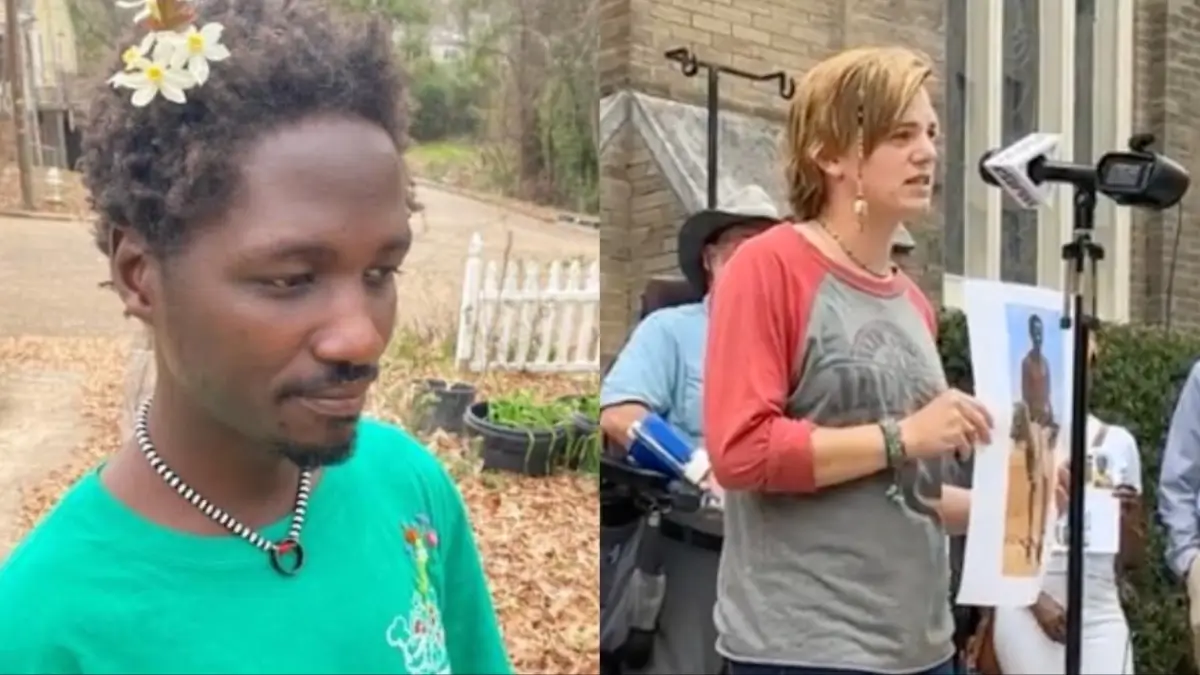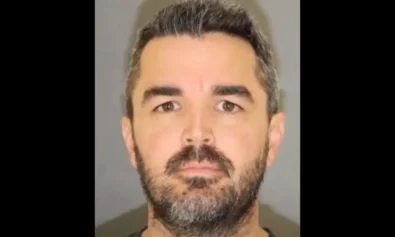The widow of a Sudanese man who went missing in Jackson, Mississippi, before his body was found floating in a river on April 13 says the law enforcement agencies in charge of the search let political differences get in the way of their efforts to find her husband, according to The Associated Press.
Dau Mabil fled war-torn Sudan as a child and built a successful new life in Jackson with a wife before he vanished mysteriously on March 25. No official cause of death has been announced by authorities, who have only said they didn’t suspect foul play despite a number of ambiguous circumstances that arose early in the investigation.
His family is calling for a federal investigation into his suspicious disappearance and death.

After weeks of search efforts, fishermen discovered his body on April 13 on the Pearl River in Lawrence County, about 60 miles south of Jackson. Now, the man’s widow, Karissa Bowley, says the state’s Capitol Police and the city’s Jackson Police Department blamed each other for complicating the search efforts. The Capitol police is overseen by Republicans, while Democrats lead the city of Jackson.
“Both of them would go out of their way to tell me how the other one was either doing a bad job or getting in their way,” Bowley told the AP. “A complete unwillingness on both sides to put aside whatever political differences or whatever larger systemic issues and histories for the sake of this case.”
Mabil was last seen walking on Jefferson Street between Fortification and High Streets in the Jackson suburb of Belhaven, along a trail that connects the Mississippi Civil Rights Museum with other city landmarks. He was dressed conspicuously and would have stood out in the surroundings because he had on a blue Adidas jogging suit, an orange shirt, and a yellow hooded sweatshirt that was tied around his waist.
There was no immediate indication of how his body wound up miles from where he was last seen.
Bowley said during the investigation, she didn’t understand why the departments weren’t collaborating effectively.
Reportedly, in one lapse of communication, Jackson cops searched an area using drones without informing Capitol Police. The state agency also noted that the move was “contrary to them working together,” according to the AP.
Grieving family members have raised major concerns about the investigation, pointing to several inconsistencies that have added to the mystery surrounding Dau Mabil’s disappearance and also put his loved ones at odds as they sought their own truths about why he died.
Days after her husband’s body was found, Bowley discovered that a judge had ordered an independent autopsy before she learned that Mabil had died, an order in response to Mabil’s brother’s request to the court.
“While the hearing was taking place, Karissa continued efforts to search for her husband, prayerfully believing he was alive, until Capitol Police arrived at the couple’s home at approximately 11:45 a.m. on April 18, 2024, and told Karissa the autopsy results,” her attorney, Paloma Wu, wrote, according to WLBT in Jackson. “This court’s order regarding her husband’s remains [was] issued before Karissa even learned that Dau was dead.”
The missing man’s brother, Bul Mabil, also questioned the accuracy of the initial autopsy results, which were released on April 18, but to his dismay, found no evidence of foul play.
“I can’t believe this would happen to someone who came here from a war-torn country,” Bul Mabil told The Associated Press, emphasizing that so far, he’s been less than satisfied with the handling of the investigation.
“I was expecting much better government in this country,” he said. “But this is the way the United States operates. It is so appalling.”
Later, Bowley went on to question how Bul Mabil would have known about his brother’s death as of Wednesday, April 17, when she didn’t.
“Karissa was unaware that any determination may have been made, including when the complaint was served to her at her and Dau’s home at or about 5 p.m. (which lacked the required notice of the hearing which was held at 9 a.m. the following day),” her attorney wrote. “Before Karissa was informed by Capitol Police that her husband was deceased, Karissa read, but did not believe, the allegation in [the] plaintiff’s complaint.”
Mabil’s attorney strongly opposed modifying the court’s initial order, stating that the right of a surviving spouse to the custody of the body for burial is not absolute but subject to judicial control.
“The surviving spouse’s right to control the burial or disposal of the decedent’s body is dependent upon the peculiar circumstances of each case and may be waived by consent or otherwise,” attorney Lisa Ross wrote.
The public outcry over the perplexing case soon caught the attention of Democratic Rep. Bennie Thompson, who represents Jackson. He wrote to Attorney General Merrick Garland, calling for the Justice Department to investigate, saying civil rights groups had contacted his office regarding Mabil’s disappearance.
In the letter, the congressman described Mabil as an “African male, who is married to Mrs. Karissa Bowley, a white female.”
After the body was found, Bul Mabil said he filed urgent legal documents to prevent his brother’s remains from being released to Bowley and her family until two autopsies were conducted: one by the state crime lab and another by an independent medical examiner.
Mabil did not cite any specific reasons for his emergency motion, which was granted by Hinds County Chancery Judge Dewayne Thomas on April 18, halting the release of the body and mandating a second autopsy.
Investigators have not named Mabil’s widow, Bowley, as a suspect, although she has hired an attorney as police asked many questions.
In the days after Dau Mabil vanished, the wife organized rallies and information campaigns to raise awareness about her missing husband while urging the public to help before he was found dead.
Court records indicate that Bowley’s efforts included canvassing the city, obtaining security and doorbell camera footage, and organizing a search of the Pearl River, where Mabil was eventually found.
Mabil’s arrival in America was filled with promise as he was part of a mission to rescue Sudanese children from famine. However, his journey ended tragically before he was able to realize his full potential in life.
He was one of 55 teenage Sudanese refugees known as “The Lost Boys” who arrived in Mississippi in late 2000. This effort relocated 3,400 children from Africa to the United States over the course of a year, and placed them in foster care programs.
Dau Mabil emerged as a capable restaurateur and appeared on his way to broader success. When he went missing, he was working as a manager at a restaurant in Jackson, with plans to go back to college to pursue a degree in computer science.
Vallena Greer, a woman from Jackson who helped raise Dau Mabil, said the young man was a model citizen with a bright future. She recalled that he once received an award at school for his progress in speaking English and said he was also known as a skilled soccer player.
No one has said that Dau Mabil had any enemies. By all accounts, he was a nice guy who made an honest living.
Bul Mabil also expressed deep sorrow over his brother’s death, which he said was being taken especially hard by his mother, who still resides in a refugee camp back in Sudan.
Bul Mabil revealed that he and his brother were part of a group of young refugees who came to the United States from Sudan to escape decades of civil war.
The siblings’ arrival in Jackson was widely heralded in the news. Julie Hines Mabus, the former wife of ex-Mississippi Gov. Ray Mabus, established a foundation to assist the refugee children in settling in Jackson. At the time, she described Dau Mabil as “soft-spoken, always smiling, with a spark in his eye.”
“He did well for what America wants immigrants to be,” Bul Mabil said. “We called Mississippi our second home. We didn’t know something like this would happen to one of us.”
Bul Mabil said nothing about his brother’s death made any sense, prompting him to keep pressure on investigators who he accused of conducting an “insufficient” investigation.
Mabil’s attorney, Carlos Tanner, claimed his client was “being kept in the dark about the suspicious circumstances” surrounding his brother’s disappearance.
Mississippi’s history includes an extraordinary number of racially motivated lynchings, with hundreds recorded between the late 19th and mid-20th centuries, including the murder of Emmitt Till in 1954, which remains a dark reminder of the state’s racist past.


